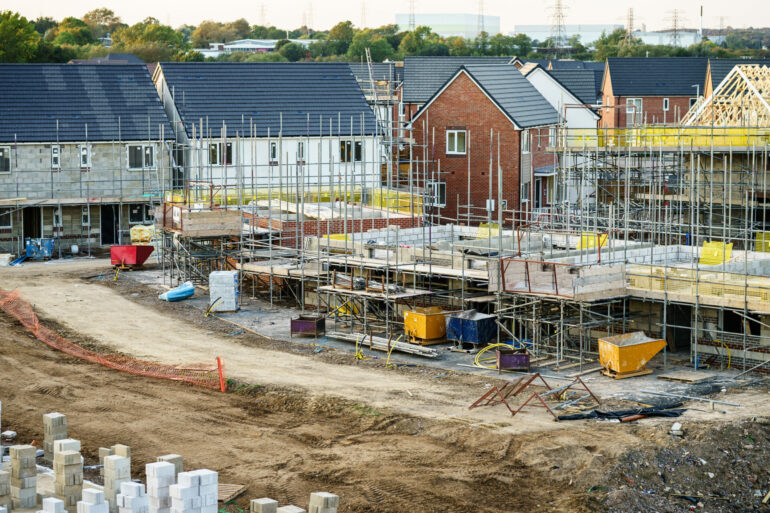Construction output in Great Britain grew by 0.6% in the three months to July 2025, according to the latest Office for National Statistics (ONS) data.
New work rose by 1.0% in this period, while repair and maintenance increased by 0.1%.
Four out of nine sectors saw growth, led by private housing repair and maintenance, which rose by 3.8%, and infrastructure new work, up 2.1%.
Monthly construction output increased by 0.2% in July 2025, following a 0.3% rise in June.
The July growth came from new work, which was up by 0.3%.
Repair and maintenance was flat.
REACTION:
Richard Cook, senior economics director at Pegasus Group:
“The Government is desperate for good news at the moment, and this morning’s construction output data showing an increase for a second month in a row will be a welcome boost.
“Whilst this could be a sign of the dark clouds hanging over the sector finally passing, the multitude of economic challenges plaguing the sector remain and mean any self-celebrations from the Government should be halted in their tracks.
“Construction output is just one piece of the puzzle, and whilst their increase is a positive and very welcome indicator, it’d be wrong to assume the UK construction industry is fighting fit.
“Past today’s headline figure, low productivity growth across almost the entire economy, a tough graduate jobs market, labour shortages in construction and concerns about looming tax rises in the upcoming Budget are all contributing to the sombre economic mood.
“If the Government were to make progress on addressing these challenges, it will actually help boost growth in the construction sector which in turn can help UK plc and give more money to the government to invest in growth.
“Only through making progress on addressing these various challenges will the construction sector be able to turn the corner and start taking strides towards its 1.5 million new homes target. For now, this goal is merely a wishful economic fantasy.”
Neil Leitch, managing director of development finance at HTB:
“These figures point to growth in new private housing, but they come against eight straight months of slowdown reported by S&P Global. The Government’s pledge to deliver more than a million homes this Parliament already looks out of reach.
“Developers want to build, and lenders are ready to support them, but the delivery chain is simply not strong enough to turn ambition into delivery.
“Begbies Traynor’s research has shown how many construction firms are already under financial strain. When margins are this thin, one setback can derail a scheme and weaken the pipeline of homes coming through.
“Approvals and starts do not guarantee completions, and unless projects can move through that delivery window, the shortfall will only grow.
“The answer is not just planning reform. Planning teams need proper resourcing, SME builders need the confidence to commit capital, and we must bring new people into the industry before the skills gap becomes irreversible. Without those foundations in place, targets will remain headlines rather than homes.”



